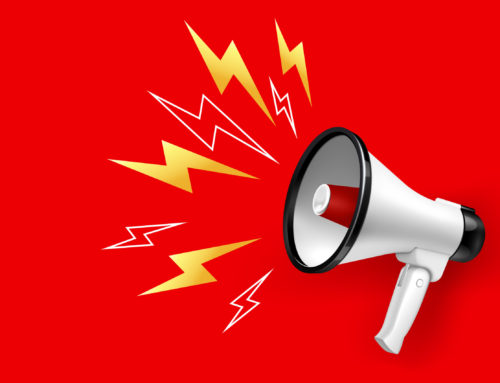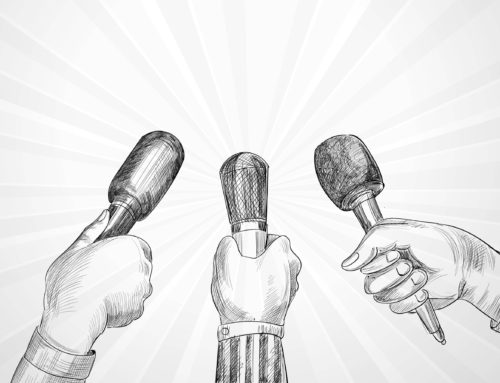
Art institutions should be inclusive. Art opens minds to new possibilities, stirs creativity and can move us in profound ways to examine the world in which we live, and the world in which we’d like to live.
All too often, though, museums and galleries in New York shut out people with intellectual and developmental disabilities, as well as the neurodivergent. Some are not wheelchair accessible or don’t bother to explain accessibility on their websites, unnecessarily complicating visits. Many more have yet to create customized programs or tours for this population.
To be fair, special programming requires expertise and a budget, which might not be available to smaller museums and spaces. It’s awfully easy, however, to list accessibility links as well as some sort of sensory guide (sometimes called a “narrative” or “story”) explaining what visitors with cognitive and sensory processing sensitivities should expect to encounter. Some museums, such as the Guggenheim, also offer a Sensory Map, which connote which areas of the museum one will encounter the biggest crowds and highest noise levels.
Below you’ll find a list of museums and galleries in New York City and the Lower Hudson Valley that had enough information on their websites to be included on this list. (And by enough, I mean they each have at least one more link in addition to accessibility.)
A shout-out to Bedford’s Inclusive Initiative, whose outreach has resulted in several local art destinations being certified as neurodivergent supportive. This includes educating staff on what neurodiversity looks like and what accommodations would be helpful.
American Museum of Natural History
200 Central Park W., New York, N.Y., 10024, 212-769-5100
Accessibility & Language Assistance
Discovery Squad Tours: A unique tour program designed for 5- to 14-years-olds diagnosed with autism spectrum disorder. The program was developed in collaboration with the Seaver Autism Center at the Icahn School of Medicine at Mount Sinai. On select Sunday mornings, families can attend a 40-minute tour led by specially trained tour guides, then spend some time exploring activities related to the Museum halls, before the Museum opens to the public. Families are invited to stay after the tour and enjoy the Museum when it opens to the public at 10 am.
Chroma Fine Art Gallery
194 Katonah Ave, Katonah, N.Y., 10536, 914-301-3179
This intimate gallery is certified as Neurodivergent Supportive through the Inclusive Initiative.
Guggenheim
1071 Fifth Avenue, New York, N.Y., 10128, 212-423-3500
Guggenheim for All Programs and Events: Custom programming and classes for individuals on the autism spectrum and their caregivers. There is also virtual programming to serve classes of students with autism and sensory sensitivities.
Hudson River Museum
511 Warburton Ave., Yonkers, N.Y., 10701, 914-963-4550
The Planetarium shows and workshops have assistive listening devices and lighting for a sign-language interpreter available.
Jewish Museum
1109 5th Ave. at 92nd St., New York, N.Y., 10128, 212-423-3200
Visitors with Learning or Developmental Disabilities: Examine art, then create a work of your own in these programs for children and adults who have developmental or learning disabilities. Workshops include gallery activities and an art project. For more info call 212-423-3289 or email access@thejm.org.
Katonah Museum of Art
134 Jay St., Katonah, N.Y., 10536, 914-232-9555
The museum is certified as Neurodivergent Supportive through the Inclusive Initiative.
KMA Sense Family Backpack: Backpack for family visitors with children on the autism spectrum or who have sensory processing differences. It’s available at the front desk and includes noise-reducing headphones, fidget toys, an art activity, and some special books.
Metropolitan Museum of Art
1000 Fifth Ave., New York, N.Y., 10028, 212-535-7710
There are a variety of workshops for visitors with developmental and learning disabilities and those on the autism spectrum. Its Discoveries program starts with a tour of the museum’s collections, usually with a specific topic that’s listed on the registration page, and then is followed up with an art-making activity. There are three age groups, ages 5-13, 14-22, and 23+.
For updates on upcoming programs, check out Facebook or email access@metmuseum.org.
Museum of Modern Art
11 W. 53rd St., New York, N.Y., 10019, 212-708-9400
Access Programs for Visitors with Intellectual and Developmental Disabilities, Create Ability: A monthly program that explores works on view and lets participants create artworks. In each session, participants focus on a different theme during interactive activities in the museum’s galleries and classrooms.
Neuberger Museum of Art
735 Anderson Hill Rd., Purchase, N.Y., 10577, 914-251-6100
There are no specifically designed programs but groups are welcome to reach out to nma.education@purchase.edu to meet the needs of the visitors.
New Museum
235 Bowery, New York, N.Y., 10002, 212-219-1222
The New Museum offers complimentary or discounted group admission for nonprofit or social services agencies that serve individuals with differing abilities or health statuses.
New York Transit Museum
99 Schermerhorn Street Brooklyn, NY 11201, 718-694-1600
Not an art museum per se, but it has a variety of wonderful programs, all of which are found under Access Programs. They include:
- Transit Quest: a week-long summer program immersing participants in New York Transit Museum content for ages 14 to 17 who identify as neurodivergent;
- Day Habilitation Day: which allows individuals and groups to explore the Transit Museum and learn about the programs offered for adults with disabilities;
- Subway Sleuths: an after-school program that builds on a shared interest in trains and public transit among 2nd through 5th grade students on the autism spectrum;
- Special Day: where children with developmental disabilities or those on the autism spectrum and their families can join for transit-themed activities, performances, and exploring the Museum before it opens to the public;
- Ready to Ride Family Event: which lets people practice how to travel by subway.
Storm King Art Center
1 Museum Rd., New Windsor, N.Y., 12553, 845-534-3115
I’m including this one despite it only have an accessibility link because it’s undoubtedly an awesome spot. It consists of 500 acres where visitors experience large-scale sculpture and site-specific commissions.
Whitney Museum of American Art
99 Gansevoort St, New York, N.Y., 10014, 212-570-3600
Sensory-Friendly Programs for Neurodivergent Visitors: The Whitney invites neurodiverse audiences to “plain-language” (i.e., clear and straightforward) gallery tours and sensory-friendly art-making workshops on select Saturdays before the Museum opens to the general public. This program is intended for kids ages 6+. There are also private plain-language tours for neurodivergent adults and relevant community organizations available by request.
Yellow Studio
792 Route 35. Cross River, N.Y., 10518, 914-704-3215
Although it is not wheelchair accessible, this art gallery and co-working space for women is certified as Neurodivergent Supportive through the Inclusive Initiative.



